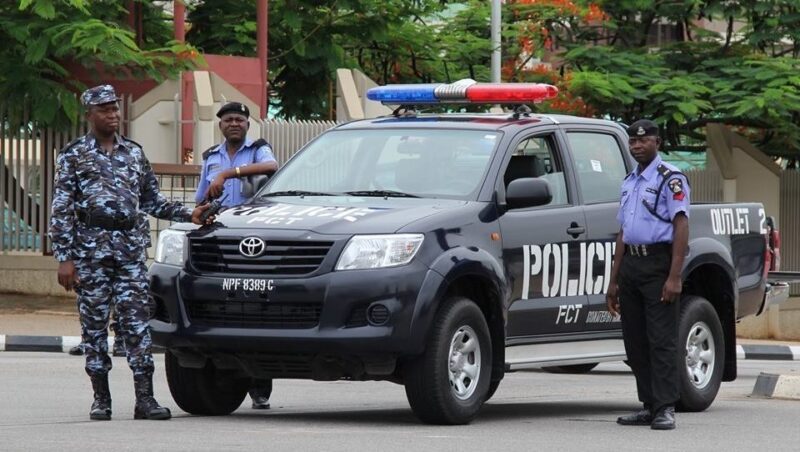National Issues
Need For A National Conference On Crime And Police Reform -By Isaac Asabor
There is no denying the fact that this piece will make some readers to ask, “Why should Police Reform be taken too far to the level of being tabled for discussion at a National Conference?” The answer to the foregoing cannot be farfetched given the definition of the phrase “National Conference”.

Pondering over the major concerns of Nigerians; both at home and in Diaspora, one would be compelled to urgently call on the government to convene a “National Conference on Crime and the Police Reformation”. The call no doubt would be considered to be laudable as it would allow Nigerians from all walks of life to put heads together and talk about how a better policing can be attained in the country, analyze the rising crime problem across all the geo-political zones, and integrate their findings into a coherent policy framework.
It is not an exaggeration to say that virtually all Nigerians by each passing day now have their hearts in their mouths as a result of the rising rate of crime that cut across armed robbery, kidnapping, banditry and their likes. There is no denying the fact that not few Nigerians are worried about the spate of perpetration of crimes that are by each passing day manifesting in varied patterns that it appears no one is safe any longer. The question now on the lips of everyone is: “Who knows who is next?” To worsen the situation, the police seems not to be rising up to the occasion as the people expect. The reason for the foregoing somewhat laxity and incapability on the part of the police formations across the country cannot not be farfetched as there are enough evidences to show that policemen of all ranks and file are compromising.
As a reader, if you are in this context thinking that I am exaggerating, you better take some reflections on the complicity of the police in the days of Lawrence Anini’s reign of terror in 1986. It would be recalled that in that year that two members of his gang were prosecuted over an earlier under-the-table ‘agreement’ with the Police to destroy evidence against the gang members. The incident, and Anini’s view of Police betrayal, is believed to have spurred retaliatory actions by Anini. Thus, in August, 1986, a bank robbery linked to Anini was reported in which a police officer and others were killed. That same month, two officers on duty were shot at a barricade while trying to stop Anini’s car. Within a span of three months, he was known to have killed nine police officers.
As if the scandal was not messy enough, Anini upon his arrest confessed that DSP George Iyamu, who was the most senior police officer was the one shielding the robbers as he would reveal police secrets to them and then, give them logistic supports such as arms, to carry out robbery operations. That no doubt was a paradox too many!
In the same vein, taking a deep reflection on what happened on April 4, 2005 would convince anyone that it is not yet Uhuru in Nigeria Police. The reason for the foregoing view cannot be farfetched as the imperfections that characterized the Nigeria Police is today still festering.
As gathered from the popular online encyclopedia, Wikipedia, it is germane to say that Tafa Balogun was arraigned at the Federal High Court, Abuja on charges involving about N13 billion obtained through money laundering, theft and other sources. The Economic and Financial Crimes Commission (EFCC) under Nuhu Ribadu brought 70 charges against Tafa Balogun covering the period from 2002 to 2004.He made a plea bargain with the court in exchange for returning much of the property and money. He was sentenced to six months in jail. He was released on 9 February 2006 after serving his sentence, part of it in Abuja National Hospital.
Still in the same nexus, in November 2008 and again in February 2009, the Chairman of the House Committee on Police Affairs, Abdul Ahmed Ningi, asked the then Inspector General of Police Mike Okiro, to provide details of the money recovered from Tafa Balogun, a request that he passed on to the EFCC chairman, Mrs. Farida Waziri. However, the EFCC stated that they did not have records of the exact properties recovered from Balogun. It was said that some of the houses had been secretly sold to certain individuals at give-away prices. In April 2009, the House of Representatives Committee on Police Affair invited Tafa Balogun, Mike Okiro and Mrs Farida Waziri to explain how the N16 billion allegedly recovered from Balogun got missing.
Be that as it may, in a somewhat blatant defiance to George Santayana’s quote that says, “Those who do not remember the past are condemned to repeat it,” not few Nigerians were taken aback when the news broke that the United States Federal Bureau of Investigation (FBI) has accused the Deputy Commissioner of Police, Abba Kyari of taking bribes from Nigerian Instagram celebrity, Abbas Ramon alias Hushpuppi, who has pleaded guilty to money laundering in the US.
There is no denying the fact that this piece will make some readers to ask, “Why should Police Reform be taken too far to the level of being tabled for discussion at a National Conference?” The answer to the foregoing cannot be farfetched given the definition of the phrase “National Conference”.
Also, it importance can be seen from the view of the United Nations Office on Drugs and Crimes (UNODC) which says “A Human rights based, democratic and diverse police and other law enforcement are core institutions for preventing and combating crime and maintaining the rule of law. They often represent the first responders to crime. Their contact with offenders, victims and witnesses may impact the entire experience of the criminal justice system and access to justice of those affected by crime. They also play a key role in ensuring high-quality evidence-based investigations and case files which allow for successful prosecution and trials including those concerning organized crime, terrorism and corruption cases. This crucial duty often places police officers in a vulnerable position to corruption, as criminals may offer bribes in an attempt to circumvent the law. For this reason and because achieving public trust is key to effective policing, it is important to enhance police integrity and to effectively manage corruption risks within the institution. Indeed, only if people trust the police and regard them as legitimate they will be willing to cooperate and comply with their instructions, enabling the police to succeed in performing their functions”.




















